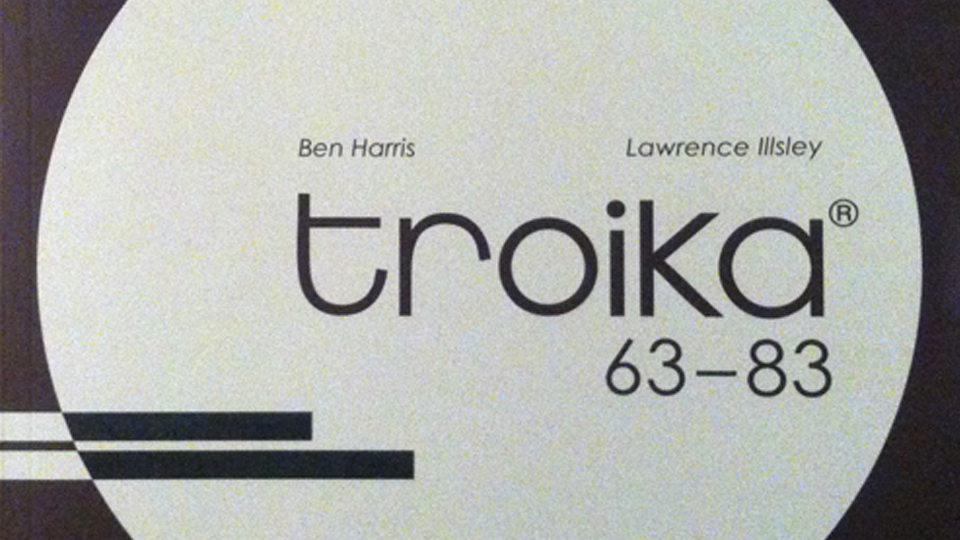
A talk by authors about the international connection of Cornish pottery manufacturers Troika based upon the book Troika 63-83 by Lawrence Illsley and Ben Harris.
You can view the Troika website here.
Many of you know will Troika. You may have seen it on Flog It or on your Auntie’s mantelpiece. It may not be quite a household name but is found in many houses and you will probably recognise their work.
Troika were producers of modern pottery but they were not potters in the traditional sense, preferring to use moulds to create geometric modern shapes and eventually sculptural work. They started as an art collective making abstract wall plaques and sculptures in the evening. In the day they made perfume jars and small rectangular vases to fund their experimentation.
Over time they expanded their range and developed their artistic practice to build the business into an international brand. One that still resonates with people around the world today.
The book Troika 63-83 is the culmination of three years of research by Lawrence Illsley and Ben Harris. Lawrence is the son of Leslie Illsley, one of the co-founders of Troika who passed away in 1989. Ben Harris is a collector of Troika who was concerned by an inconsistent representation of Troika on the internet. They decided to embark on a detailed study of Troika – studying the pieces and meeting the people who made them.
They spent two years interviewing people who worked at Troika including co-founder Benny Sirota. What they discovered was a compelling story of a group of dedicated modernists who set about trying to improve the quality of people’s lives by introducing them to the pleasures of modern art while at the same time providing a living for themselves and their small but dedicated workforce.
They also discovered a vast quantity of never before seen primary evidence. Through this process they were able to analyse and re-evaluate Troika’s impact on the Cornish art scene and the wider world.
At the Global Cornwall Conference they discussed how Troika brought international influences into studio pottery. From modern European abstract art to South American Aztec sculpture.
They also discussed how Troika’s distinctive modern approach. Integrating art in the home allowed them to achieve commercial success, first at Heals’ in London and then internationally in Scandinavia, America and continental Europe.
Troika has enduring appeal up to this day and can be truly seen as a global Cornish brand. It is collected and studied across the world. The book has sold copies in Japan, Germany, Australia and New Zealand. We must now look to protect their history and begin to assess the artistic impact of this often overlooked Cornish company.
You can buy a copy of the book via the Troika website.
